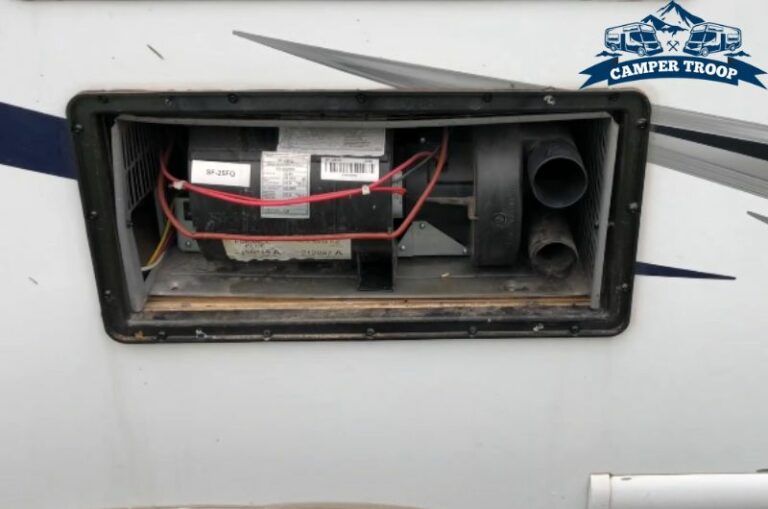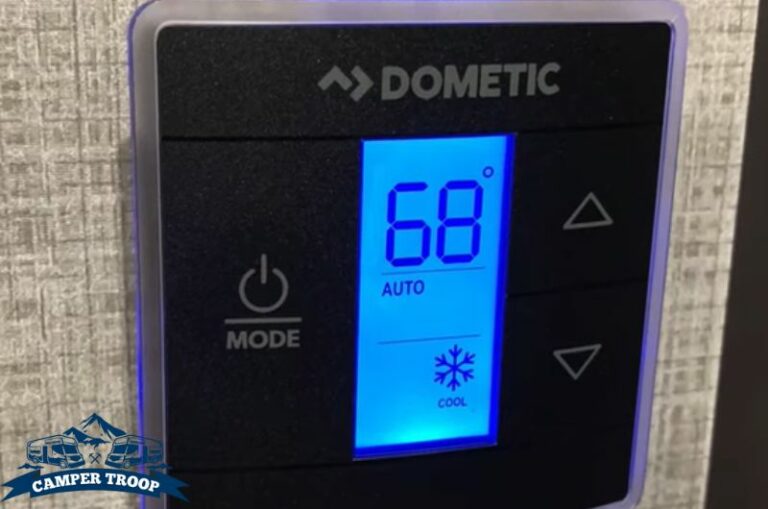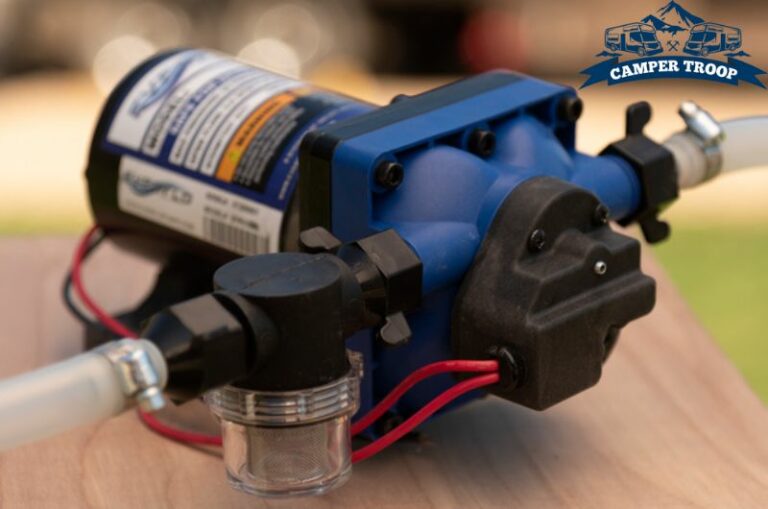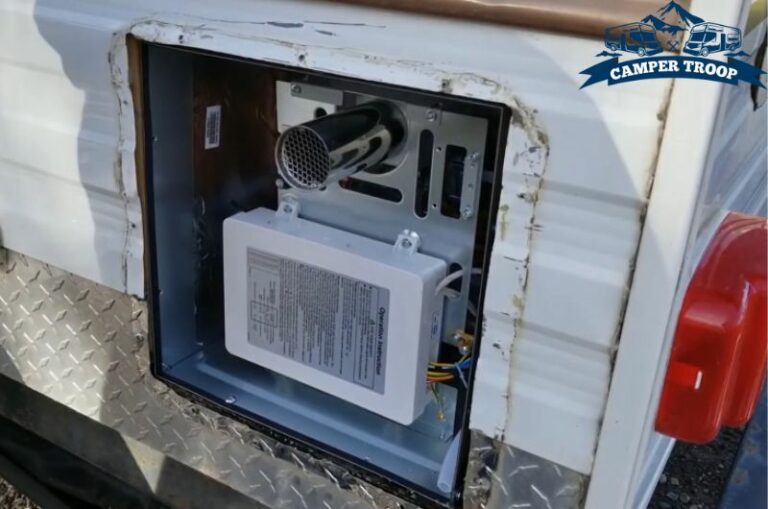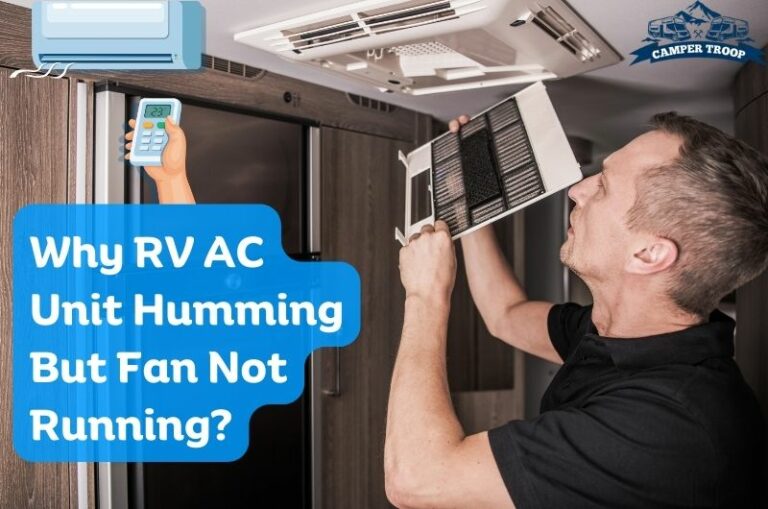Why Everchill RV Fridge Not Cooling: How to Fix it?
I’ve been an Everchill user since the beginning of my RV life. While the refrigerator has been a great companion throughout the years, there have been some hiccups. But what bothered me the most was when the RV fridge stopped cooling properly.
As far as I’ve seen, several things can lead to the Everchill fridge not cooling, like not parking your RV on level ground, inadequate air circulation, electrical loads, etc. And tripping the breaker, replacing the thermistor, and unclogging the exhaust are among many others that can solve the problem.
Here, I’ve listed eight of the most common causes and respective solutions for Everchill RV fridges not cooling.
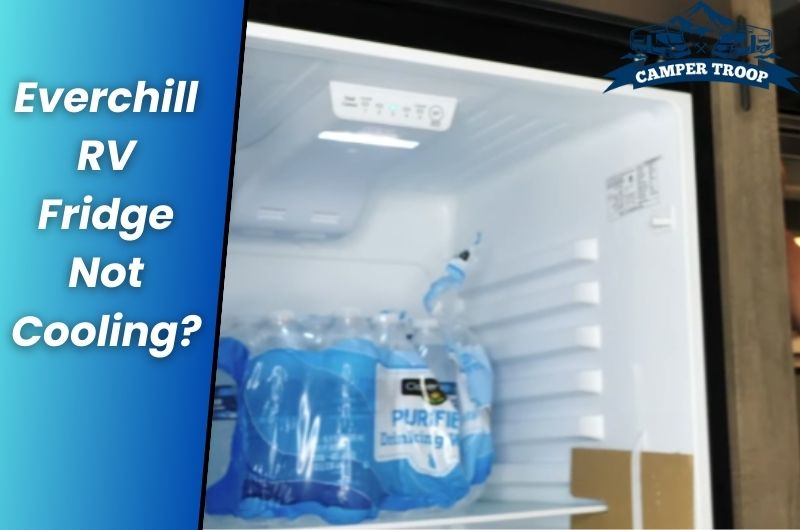
8 Ways to Fix Everchill RV Fridge Not Cooling:
Surprisingly, RV refrigerator failures are most often caused by steep terrain. As you know, the coolant won’t flow when the RV isn’t level, preventing the cooling. So, it’s best to stay away from off-road roads as much as possible.
However, if your RV is properly parked and leveled, but it’s failing to cool properly, you might want to check the following:
1. Reset Your Everchill RV Fridge
Resetting is often the first step in diagnosing an electrical issue, and you should also try it with your RV fridge. It’s the best step to start with if you can’t figure out why the EverChill fridge isn’t chilling.
Unfortunately, my Everchill didn’t come with a reset button, which is common to their products. But I was able to reset it by simply cutting the power from the unit’s circuit breaker for two hours, which fixed the no-chilling issue.
2. Ensure Proper Air Circulation
Sometimes, all you need to do is to ensure proper air circulation. A lack of air circulation is common in hot climates. If hydrogen and ammonia burn slower than the ambient air, the refrigerator won’t cool properly.
I solved this issue by installing a fan with a higher RPM behind my Everchill’s opening. As the evaporator fan increases airflow in the fridge chamber, the fridge and surrounding air will balance each other’s temperature. Consequently, the cooling chamber will remain at a constant temperature.
3. Connect the Temperature Sensors Properly
The temperature sensor can also cause RV refrigerator issues. After all, it’s responsible for sensing temperature and altering the cooling power accordingly.
Therefore, you must connect the sensor properly to the fin and spin it to regulate the temperature. Doing otherwise may eventually lead to irreparable damage to the system, leaving you with an Everchill fridge that is not cooling.
4. Check and Replace the Thermistor
In any RV refrigerator, the thermistor plays a key role. Its negative temperature coefficient impacts the fridge’s cooling cycle. You know yours is defective when the freezer cools but not the refrigerator.
As the ambient temperatures rise considerably, these thermistors become less effective at cooling. It results in the hot mixture flowing quicker, which leads to the freezer’s excessive cooling while decreasing the refrigerator’s.
The only simple solution I found was replacing the defective thermistor with the new one. But remember, the longer you run your fridge without a thermistor, the more you risk reducing its lifespan. So, never remove it unless during emergencies.
Read Also: What Causes Dometic Fridge Check Light: How to Fix it?
5. Unclog the Exhaust
Gunk and dirt can collect inside your RV refrigerator like any other machine. If this happens, it will block the heat transfer process and, consequently, reduce the cooling in the refrigerator.
My Everchill’s backside exhaust exits through the roof’s vent cover. I had to unclog it once using lukewarm water and a soft cloth. Now, it’s advised to clean the exhaust at least twice a year to prevent any clogging.
6. Replenish the Coolant
As with household refrigerators, Everchill or any other RV refrigerator can also run low on coolant.
The coolant goes to the freezer before it reaches the refrigerator. Hence, coolant discrepancies will affect the refrigerator before the freezer. The problem arises when the fridge runs on an empty tank, with the ammonia mixture drying up.
The only solution is to refill the tank with the appropriate liquid and gas coolant. However, when it first occurred to me, I messed up by not defrosting the tank before filling it up. It resulted in a severe leak, which I had to fix with the help of a professional.
So, besides defrosting the tank beforehand, you must also ensure the unit is turned off.
Read Also: Why Is Norcold RV Refrigerator Not Cooling? (Causes & Fixes)
7. Replace Any Blown Fuse
The power delivery system of the Everchill fridge is managed by the fuse, and hence any electrical or mechanical malfunction can cause it to blow out.
You can inspect the fuse by removing it from its position to check if it’s broken. If so, replace it with a new one having the same amp rating and voltage.
8. Check for Electrical Load
Finally, as I experienced, a heavy electrical load can be another reason the Everchill fridge won’t cool. A faulty electrical load could be causing your Everchill to cool less, even if it is functioning properly.
Frequently leaving electrical appliances on for extended periods can cause the refrigerator to take overload and stop working at its full potential. Therefore, it’s important to reduce the electrical load by removing any unnecessary charger plugs or other plugged-in electrical items.
Read Also: Why Everchill RV Refrigerator Light Blinking: How to Fix it?
Frequently Asked Questions
Below, I have answered some frequently asked questions about Everchill RV fridges not cooling.
Does Everchill 12v RV Refrigerator Need a Battery to Operate?
The Everchill 12v RV refrigerator does not need a battery but a 12v power source. An RV generator, solar system, or external battery can provide this. Essentially, when plugging the Everchill into an external battery, you should ensure it’s always above 12.5 volts to avoid any damage.
Why is my Everchill refrigerator not cooling, although the freezer is?
A defective thermistor is the most common reason for the Everchill refrigerator not cooling. It plays an important role in the appliance’s cooling system by controlling the flow of hot and cold air. So, replace the thermistor if your Everchill fridge isn’t cooling but the freezer is.
Why is my Everchill emitting a bad smell when not cooling?
The bad smell can be caused by mold or mildew due to warm air entering the unit. Besides, the refrigerator’s use of ammonia, hydrogen, and other chemicals might also be responsible for this. It may indicate a severe leak, and you must call a professional for assistance.
My Everchill wd-282fwdc has stopped cooling after a power outage. What should I do?
Reset the circuit breaker and check the fuse to ensure it is still in good condition. Additionally, verify the power source and replace any blown fuse. Besides, you should also check whether your RV fridge needs additional coolant. If the issue persists, seek professional assistance.
Conclusion
These are some of the major issues I faced with my Everchill RV Fridge not cooling. I hope you can benefit from my experience and save yourself the time and energy I wasted while debugging.
If unsure of any particular steps, it’s always best to call in the experts. It’s better than screwing up your refrigerator and bearing extra expenses.
And last but not least, always use a dedicated power outlet to plug in the RV fridge. This will reduce the risk of a power surge damaging the fuse, saving you a lot of trouble.
Read Also: Why Unique Propane Fridge Won’t Stay Lit: How to Fix it?

Zayan is an accomplished author and a go-to expert for all things RV and camper-related. With a passion for adventure and a knack for problem-solving, he has spent years exploring the open road and fine-tuning his knowledge of recreational vehicles.
Zayan’s writing is a testament to his expertise, offering readers practical solutions to common RV dilemmas. Whether it’s troubleshooting mechanical issues, optimizing space, or planning the perfect road trip, Zayan’s insightful advice and engaging storytelling make him an invaluable resource for both seasoned travelers and newcomers to the world of RVing.

